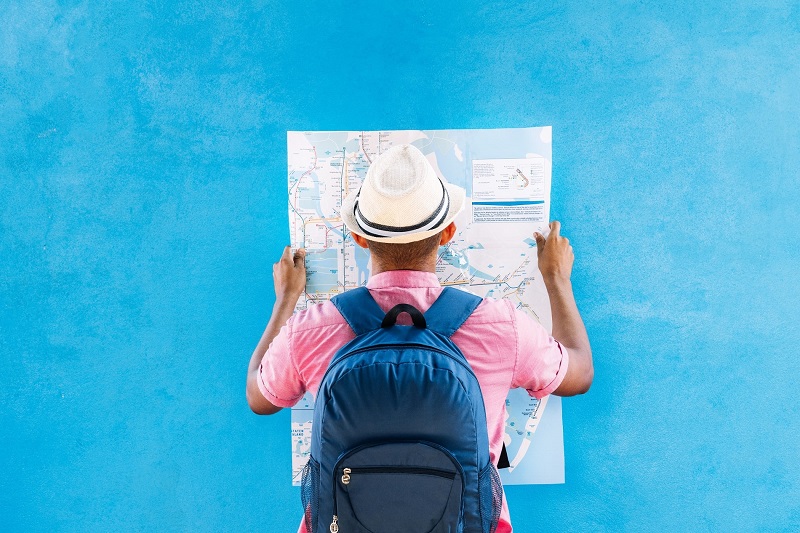Navigating the world can be a thrilling adventure, but for those of us with hearing or visual impairments, it presents a unique set of challenges. But don’t let that put you off! With the right knowledge and preparation, travel can be an enriching and accessible experience for everyone.
Understanding Hearing and Visual Impairments
Delving further into the topic, we consider what hearing and visual impairments entail and how they impact the travel experience.
The Challenges Faced in Typical Travel Situations
When it comes to typical travel situations, individuals with hearing or visual impairments often encounter unique obstacles. For instance, acquiring information about departure times or gate changes at airports becomes challenging in the absence of audio prompts or visual display boards. Similarly, navigating unfamiliar environments also possesses varied hurdles. Recognizing landmarks or using sign language to communicate can be problematic without proper visual support.
Chance encounters with unfamiliar people aren’t a walk in the park either. Individuals might find it hard to understand accents or local dialects without effective hearing aids. Moreover, cultural nuances or local etiquette might go unnoticed without the benefit of visual cues. These examples underscore the distinct challenges this group faces during travel, regardless of the destination.
The Importance of Proper Accommodations
Considering these challenges, the suitability of accommodations becomes crucial. By accommodations, I refer not only to lodging but also to services or adjustments helping overcome the inherent challenges during travel.
The right kind of accommodations can enable individuals with hearing or visual impairments to enjoy their travel experience to the fullest. Examples include tactile maps and guides, specially trained guides fluent in sign language, Braille menu cards at restaurants, or assistive hearing devices provided at informational booths or visitor centers.
Effectively accommodating travelers with impairments also involves training staff in sensitivity, employing people knowledgeable in sign language, and gearing services towards a more inclusive experience. It’s evident that proper accommodations can transform the travel experience from a challenging ordeal to one brimming with ease and enjoyment. It merely highlights the undeniable significance of accommodations in making travel more accessible for everyone.
Traveling with a Hearing Impairment
This segment elaborates on the specific accommodations needed for travelers with hearing impairment and culminates with highlight of unique travel experiences of such individuals.
Accommodations Required for Hearing Impaired Travelers
Traveling as a hearing-impaired individual brings a unique set of requirements. Essential accommodations include access to visual or tactile alerts for events typically conveyed by sound – for example, doorbells, smoke alarms, or wake-up service alerts at hotels. Technology like visual alerting systems can be lifesaving in emergencies, flashing lights when an alarm goes off.
Another useful service at hotels can be a Teletypewriter (TTY), which helps travelers with impaired hearing to communicate over the phone. Moreover, tour guides proficient in sign language or using amplification devices can boost the travel experience significantly.
Also, effective information accessibility measures at travel stations – be it train stations, bus depots, or airports – are essential. This includes having visual announcements on screens corresponding to audio announcements, often overlooked, but is a key requirement.
Noteworthy Travel Experiences from the Hearing Impaired
While there are challenges for the hearing impaired when exploring new locations, plenty of gratifying experiences are out there, too. Cindy, a travel enthusiast with severe hearing loss, recounts her uplifted spirits when the staff at a French airport readily provided assistance in English sign language—an unexpected but welcomed accommodation!
Similarly, John, a subway aficionado, appreciates the visual indicators prevalent in many global city’s metro systems. Having traveled on New York’s, Tokyo’s, and London’s metros, he applauds the clear visual cues, such as flashing lights for arriving trains and LED sign boards announcing stops, making public transport more accessible.
At its core, travel is about exploration and learning. And for the hearing impaired, these experiences may come wrapped in different, but equally remarkable, packages. As accommodations improve, traveling becomes more inclusive, inviting all to wander and discover.
Traveling with a Visual Impairment
As we continue the exploration of accommodations instrumental for the visually impaired in their journeys, we turn our focus to understanding how tailored services and modifications can aid visually impaired travelers.
Essential Accommodations for Visually Impaired Travelers
Upon understanding visual impairment’s impact on travel, it becomes clear that specific modifications and services are often beneficial in enhancing the travel experience. For instance, technological innovations like portable electronic magnifiers and GPS apps designed specially to assist visually impaired individuals can be immensely practical. For navigation around unfamiliar settings, tactile paving systems and audible traffic signals are also of great help.
In addition, services like a sighted guide not only provide visual descriptions of the surroundings but also assistance in performing physical tasks. Many hotels and airlines now offer large print or Braille versions of their menus and in-flight magazines, addressing the needs for access to critical information. Furthermore, staff trained in guiding techniques and communication strategies for visually impaired individuals can make a noteworthy difference in the travel experience.
Personal Travel Stories from the Visually Impaired
Looking at personal stories and testimonials from the visually impaired sheds a unique light on how these accommodations greatly enrich their travel experiences. For example, a traveler from Ohio describes the value of a portable electronic magnifier that allowed him to read food menus and train schedules on his journey throughout Europe.
Another traveler, Rachel, a globetrotter who happens to be blind, lauds a Tokyo hotel for its Braille signage throughout the property, making her navigate the hotel independently. These experiences underline the profound impact that thoughtful, well-executed accommodations can have in making travel more accessible and enjoyable for visually impaired individuals. Through sharing their experiences, we can better understand and seek to implement these vital accommodations throughout the travel industry.
Planning and Preparation for Travel
Reliable planning and preparation are crucial elements for successfully navigating trips for individuals with hearing or visual impairments. Outlining key actions before travel and communicating effectively with service providers ensures a smooth journey.
Essential Steps to Take Before the Travel
It’s crucial to prioritize a few steps before kicking off your journey. Notably, consult a healthcare professional, ideally one specialized in your specific impairment. For instance, if you’re visually impaired, your optometrist could suggest useful visual aids.
Secondarily, familiarize yourself with travel insurance that covers unique needs. Special insurance packages provide coverage for lost or damaged aids, such as hearing aids, or a guide dog’s medical emergencies.
Thirdly, research potential destinations thoroughly. Understanding a location’s accessibility can prevent unexpected hurdles. For instance, is there audibly guided pedestrian crossings, or does the hotel offer Braille menus? Familiarity with the surroundings enhances comfort during the journey.
Lastly, planning in advance for medication is another key consideration. Request prescriptions for the whole travel duration and always keep them within easy reach.
Communicating Your Needs with Travel Providers
Clear communication with travel providers enhances your travel experience. Initially, while making reservations, specify your special needs clearly. While booking a hotel, request for a room equipped with visual or tactile alerts to correspond to sounds.
If traveling by air, contact the airline ahead of time. Inform them about specific needs like boarding assistance or inflight visual signals.
Subsequently, when using public transport, communicate your needs effectively. For instance, you might need to ask for a tactile map of the subway or a bus timetable in Braille.
Lastly, remember to request access to amenities like large print or Braille materials in hotels and Teletypewriters (TTY) for phone communication in case of hearing impairment. Direct conversations with service providers can significantly enhance the travel, ensuring comfort, security, and an overall enjoyable experience.
Advanced Technologies Assisting in Travel Accommodations
In our digital era, technology plays a pivotal role in easing travel for everybody. It has become a genuine game-changer, particularly for travelers with visual or hearing impairments. Technological advances provide tools that make exploring the world more accessible, maximally reducing travel-associated challenges.
Modern Tools for Hearing Impaired Travelers
Vibrating alarm clocks ensure that travelers with hearing impairments won’t miss their early morning flights or adventures, vibrating vigorously to wake them up instead of producing sound. Visual or tactile alerting devices also significantly improve their travel experiences. These devices provide visual or vibrating alerts for events typically announced by sound, such as incoming calls or door knocks. Another modern tool is the Teletypewriter (TTY), a mechanism that enables phone communication for individuals with hearing impairments by allowing them to type their messages. Lastly, there’s been a surge in smartphone applications that provide real-time captions for live conversations, making it easier for travelers to communicate their needs or ask for directions.
Innovative Gadgets for Visually Impaired Travelers
Traveling for visually impaired individuals has been transformed significantly with the advent of high-tech devices. Portable electronic magnifiers, for instance, enlarge small texts on menus or signs, making them larger and clearer to read. GPS applications designed for visually impaired travelers give auditory instructions, helping them navigate unfamiliar places confidently without requiring assistance. Audible traffic signals alert pedestrians to safe crossing times by emitting distinct sounds, allowing visually impaired travelers to navigate city streets with increased assurance and independence. Additionally, tactile paving systems constructed in various public places act as sensory indicators for safe and accessible routes, making public spaces more navigable. Finally, braille e-books have digitalized reading materials, enabling visually impaired individuals to read books, maps, or guides on their handheld devices.
Legal Rights and Protections for Disabled Travelers
In the world of travel, individuals with hearing or visual impairments possess specific legal rights and protections. This section enriches our understanding of national and international legislative protections designed to guarantee equal access to travel services for everyone.
Understanding the Americans with Disabilities act
Embarking on the journey of understanding legal rights for disabled travelers, it’s pivotal to start from the Americans with Disabilities Act (ADA). Enacted in 1990, ADA exists to protect individuals with disabilities from discrimination, making it a vital piece of legislation for travelers. It mandates that all public and commercial facilities provide reasonable accessibility modifications, which extends to travel-related establishments. That includes hotels, restaurants, and transportation services, making certain they’re accessible to people with disabilities, including those with hearing or visual impairments. For instance, hotels must offer rooms fitted with visual alarms or notification devices, and transit authorities should ensure visual announcements are present in their stations. Additionally, businesses are required to make “reasonable modifications” to policies, practices, or procedures when necessary to accommodate individuals with disabilities, unless it results in a fundamental alteration of their goods or services.
Legal Protection Worldwide for Disabled Travelers
On the international front, travelers with disabilities also enjoy legal protection. The United Nation’s Convention on the Rights of Persons with Disabilities (CRPD), adopted in 2006, stands as a crucial legal instrument. It underscores the rights of persons with disabilities, including their right to mobility and to participate fully in all aspects of life, not excluding the joy and enrichment that comes with travel. More than 160 nations have ratified it, which implies a commitment to ensure public transport systems, hotels, and other tourist facilities are accessible. Furthermore, many individual countries have their own legislation modeled after ADA or the CRPD. In essence, these protections show a global understanding that travelers with hearing or visual impairments have the same right to explore the world as anybody else. However, complexities may still arise due to local practices and enforcement of these laws, so travelers are advised to thoroughly research their destination’s specific legal protections.
Suggestions for Travel Providers
Let’s dive into suggestions for travel providers that can make trips more accommodating for individuals with hearing or visual impairments. I’ll explore strategies that can create a more accessible travel environment.
Making Accommodations More Accessible
Firstly, travel providers can take steps to make their services more accessible. For example, airlines can offer in-flight entertainment with subtitles or descriptive audio for all their content. Moreover, hotels can ensure they have rooms with accessible features such as tactile indicators for room numbers or visually stimulating fire alarms for those with hearing impairments.
To aid mobility in unfamiliar environments, travel providers can also offer services such as indoor navigation systems. These systems, such as tactile paving or auditory guidance tools, can be immensely helpful for visually impaired travelers. Technology can play a significant role here, with advances such as Braille e-books and GPS applications with auditory instructions proving to be effective tools.
Fostering Inclusive Travel Experiences
Beyond accessibility, travel providers must consider inclusivity. This means creating an environment where travelers with hearing or visual impairments feel welcomed and supported. Supporting measures can include staff training on sign language or on assistance techniques for visually impaired guests. This not only eases communication but also signals to travelers that their needs are recognized and valued.
Additionally, providers can aim to create a culture of understanding and empathy. They can promote disability awareness among all travelers by sharing inspirational stories of travelers with impairments or embedding inclusivity in advertising campaigns. From boarding a plane to exploring a new city, every part of the travel experience can be designed to ensure inclusivity.
By enhancing accessibility and promoting inclusivity, travel providers have a vital role to play in ensuring individuals with hearing or visual impairments can enjoy enriching and stress-free travel experiences.
Conclusion
Traveling with a hearing or visual impairment doesn’t have to be daunting. It’s all about having the right knowledge, preparation, and accommodations in place. Remember, it’s not just about the journey but the enriching experiences that come with it. Technology has become a game-changer, with innovations like TTYs, portable electronic magnifiers, and GPS apps making travel easier. But it’s also about the human touch – trained staff, sighted guides, and a culture of understanding and empathy. Don’t forget to plan ahead, communicate your needs, and know your rights. And to the travel providers out there, let’s make inclusivity the norm, not the exception. Because when we do, we’re not just making travel accessible, we’re making the world accessible. So here’s to safe and enjoyable travels, no matter who you are or where you’re going!










0 Comments